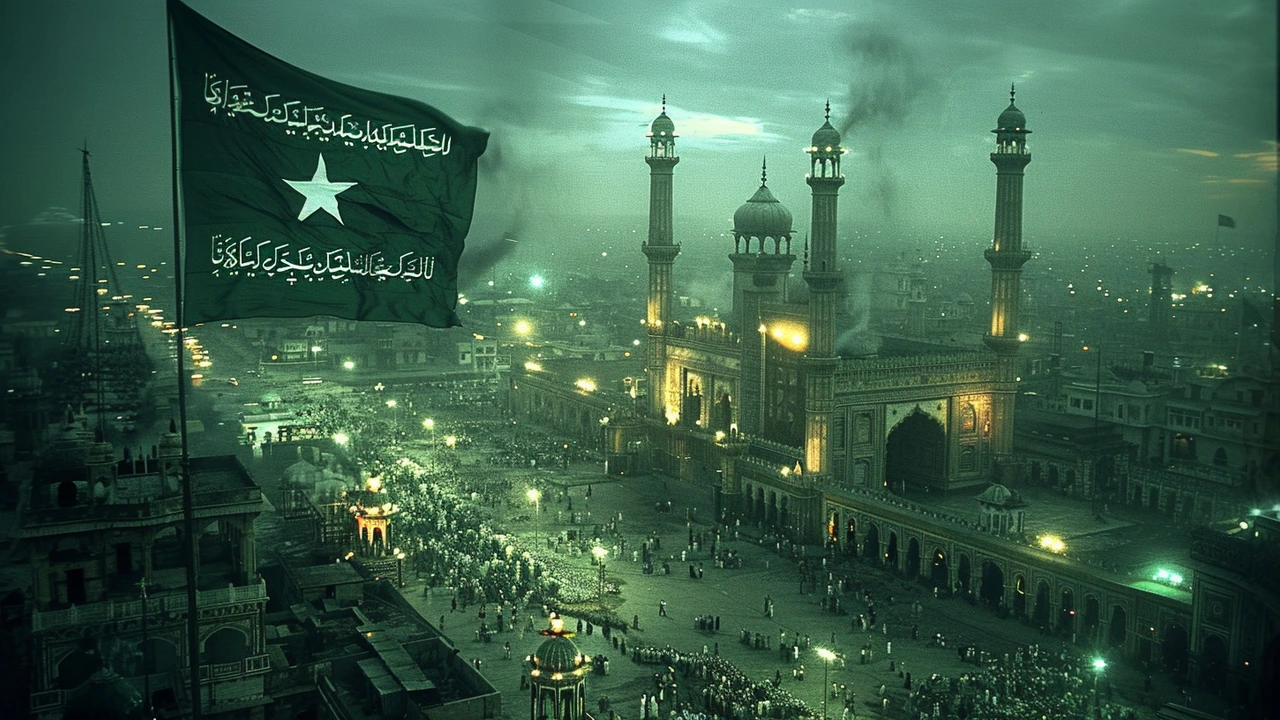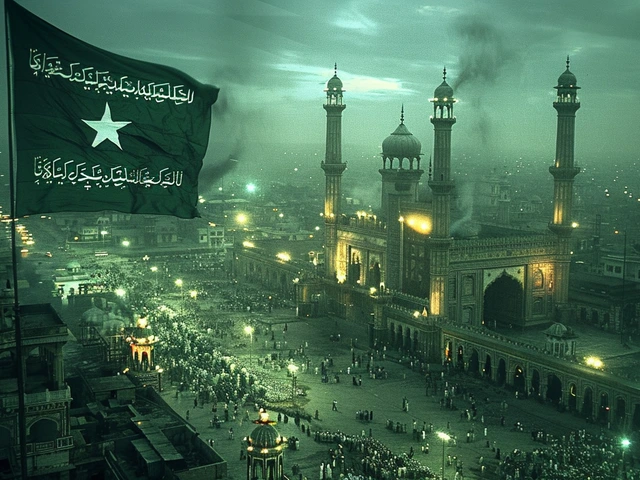
PM Shehbaz Declares Holiday for Youm-e-Takbeer: Celebrating Pakistan's Nuclear Milestone
PM Shehbaz Declares Holiday for Youm-e-Takbeer: Celebrating Pakistan's Nuclear Milestone
Prime Minister Shehbaz Sharif has officially declared May 28 as a public holiday in Pakistan to honor Youm-e-Takbeer. The announcement comes as the nation prepares to commemorate the 26th anniversary of its nuclear tests conducted in 1998, a day that holds substantial historical significance and national pride for Pakistan.
Youm-e-Takbeer, translating to 'The Day of Greatness,' is celebrated to remember the moment when Pakistan emerged as the seventh nuclear-armed country globally and the first in the Islamic world. On May 28, 1998, the country successfully carried out five nuclear tests in the Chagai Hills of Balochistan. This remarkable feat not only strengthened Pakistan's defense capabilities but also restored the balance of power within the South Asian region.
Emphasizing the importance of this milestone, PM Shehbaz Sharif stated that the declaration of the public holiday is a tribute to the unwavering resolve and unity demonstrated by the nation. He reiterated the need for Pakistan to remain steadfast and united to maintain its defense invincibility and regional stability. The Prime Minister's message serves as a reminder of the significant strides Pakistan has made in its defense sector over the past decades.
The tests conducted on that fateful day in 1998 were in response to India's nuclear tests earlier that month. The decision to go nuclear was a contentious one, marked by intense international scrutiny and economic sanctions. However, the then Prime Minister Nawaz Sharif, Shehbaz Sharif's elder brother, made the momentous decision to proceed, citing national security and regional stability reasons. The calculated move was aimed at deterring any adversaries and showcasing Pakistan's scientific and technological expertise on the global stage.
The Significance of Youm-e-Takbeer in Pakistani History
Every year, Youm-e-Takbeer is marked by various patriotic events, including parades, seminars, and exhibitions that reflect on the country's journey in nuclear science and technology. The highlight of the celebrations often includes speeches and messages from key governmental and military leaders who commend the bravery and contributions of the scientists, engineers, and personnel involved in the nuclear program.
Over the years, this day has become an opportunity for Pakistanis to reflect on their nation's achievements and the continuous efforts toward bolstering its defense mechanisms. Educational institutions conduct special programs to educate the younger generation about the historical and strategic importance of achieving nuclear capability.
The announcement of the holiday implies that the State Bank of Pakistan (SBP), the Pakistan Stock Exchange (PSX), and other governmental institutions will remain closed on May 28. This closure ensures that the entire nation can participate in this day of pride and celebration without the distractions of daily business activities.
The Path to Becoming a Nuclear State
It is essential to understand the context of Pakistan's nuclear journey. The pursuit to become a nuclear state began in the 1970s under the leadership of Prime Minister Zulfikar Ali Bhutto. He famously declared that Pakistanis would prefer grass over surrendering the nuclear ambition. This unwavering commitment catalyzed numerous efforts by scientists and engineers, often working under immense pressure and secrecy.
The progress made in Pakistan's nuclear program also sheds light on the sacrifices and dedication of individuals in the face of global opposition and resource constraints. Key figures like Dr. Abdul Qadeer Khan emerged as national heroes, lauded for their ingenuity and determination. Their contributions ensured that Pakistan could develop indigenous nuclear technology capable of defending its sovereignty.
The events that led to the tests in 1998 were a direct response to regional geopolitical dynamics. India's nuclear advancement prompted Pakistan to showcase its deterrent capabilities, emphasizing that the country would not compromise on its security. The consequent balance of power established with the nuclear tests brought a new era in South Asian geopolitics.
National Unity and Future Aspirations
Youm-e-Takbeer is more than just a remembrance of past achievements; it serves as a call to continued progress and innovation. As the nation celebrates, it is vital to look forward toward new scientific endeavors and sustainable development. Strengthening defense capabilities remains crucial, but equally important is advancing in fields such as education, healthcare, and technology.
Prime Minister Shehbaz Sharif's emphasis on national unity underscores the collective effort needed to drive the nation forward. In his statement, he urged citizens to work together in making Pakistan an exemplary nation. This unity is seen as pivotal in addressing contemporary challenges and achieving future milestones.
In classrooms and communities across Pakistan, the resonance of Youm-e-Takbeer is palpable. Teachers and parents are using this occasion to instill a sense of patriotism and responsibility in the young minds, ensuring the legacy of resilience and determination continues. Discussions on national forums and media outlets further amplify the spirit of the day, reinforcing the pride in Pakistan’s nuclear accomplishment.
As the holiday approaches, preparations are already underway to celebrate with full zeal and enthusiasm. Streets will be adorned with national flags, and public spaces will host numerous activities, all aimed at commemorating Pakistan's nuclear journey. This collective celebration not only honors a historic achievement but also reinforces the country's commitment to a secure and prosperous future.
The Global Impact and Pakistan's Positioning
The global ramifications of Pakistan's nuclear tests in 1998 were significant. They attracted both condemnation and cautious respect from the international community. While some countries imposed sanctions, others acknowledged Pakistan's strategic necessity to maintain regional peace. This delicate balance highlighted the geopolitical complexities that Pakistan navigated to protect its national interests.
In the broader context, Pakistan's emergence as a nuclear power has contributed to its stance in various international relations and defense forums. Being part of the exclusive nuclear club has enhanced its strategic dialogues with other countries, allowing Pakistan to assert its position on the global stage more effectively.
The journey that began in remote labs and test sites across the country is now a source of immense national pride. The narrative of Youm-e-Takbeer is not just about military prowess but also about scientific achievement and national resilience. The holiday declared by PM Shehbaz Sharif is an apt recognition of this comprehensive legacy.
In sum, as May 28th approaches, Pakistan stands ready to celebrate Youm-e-Takbeer with pride and enthusiasm. The day is a reflection of the country's scientific achievements, national unity, and strategic resilience. The public holiday will undoubtedly strengthen the sense of national pride and unity as Pakistan commemorates a pivotal moment in its history. The legacy of May 28, 1998, continues to inspire and empower Pakistan's aspirations for the future.






